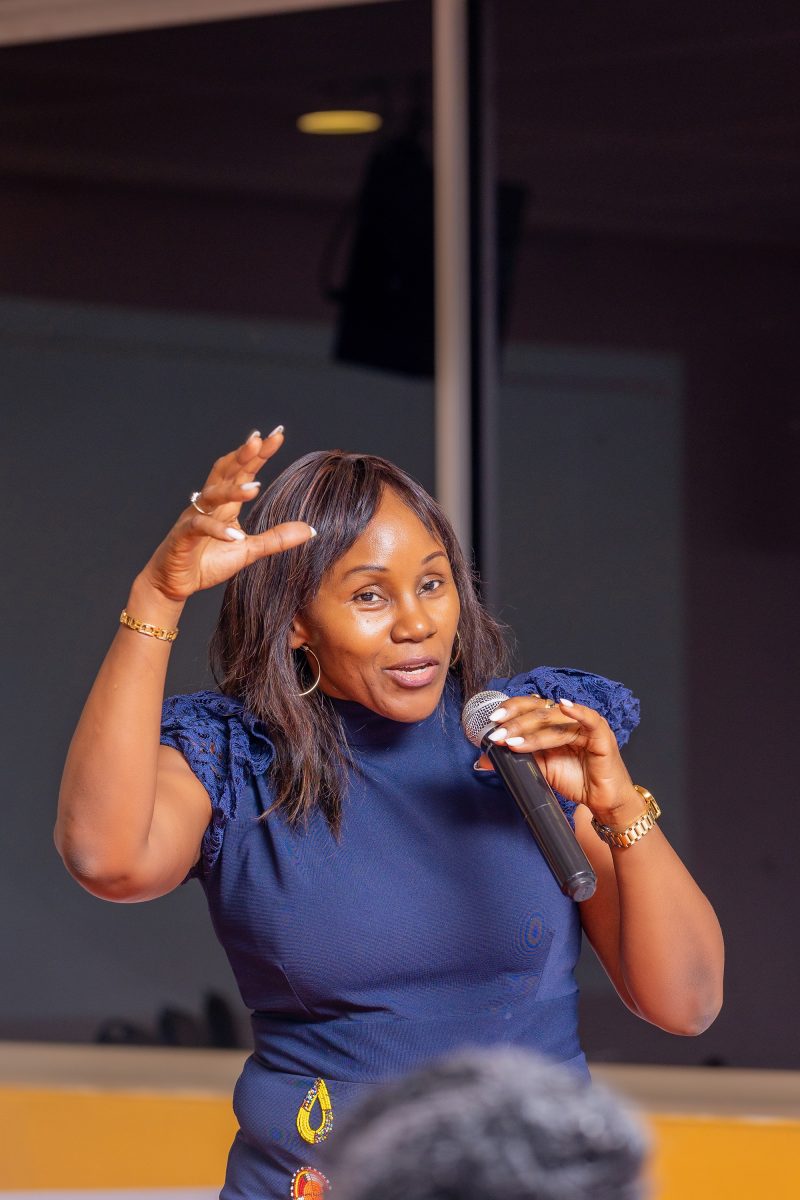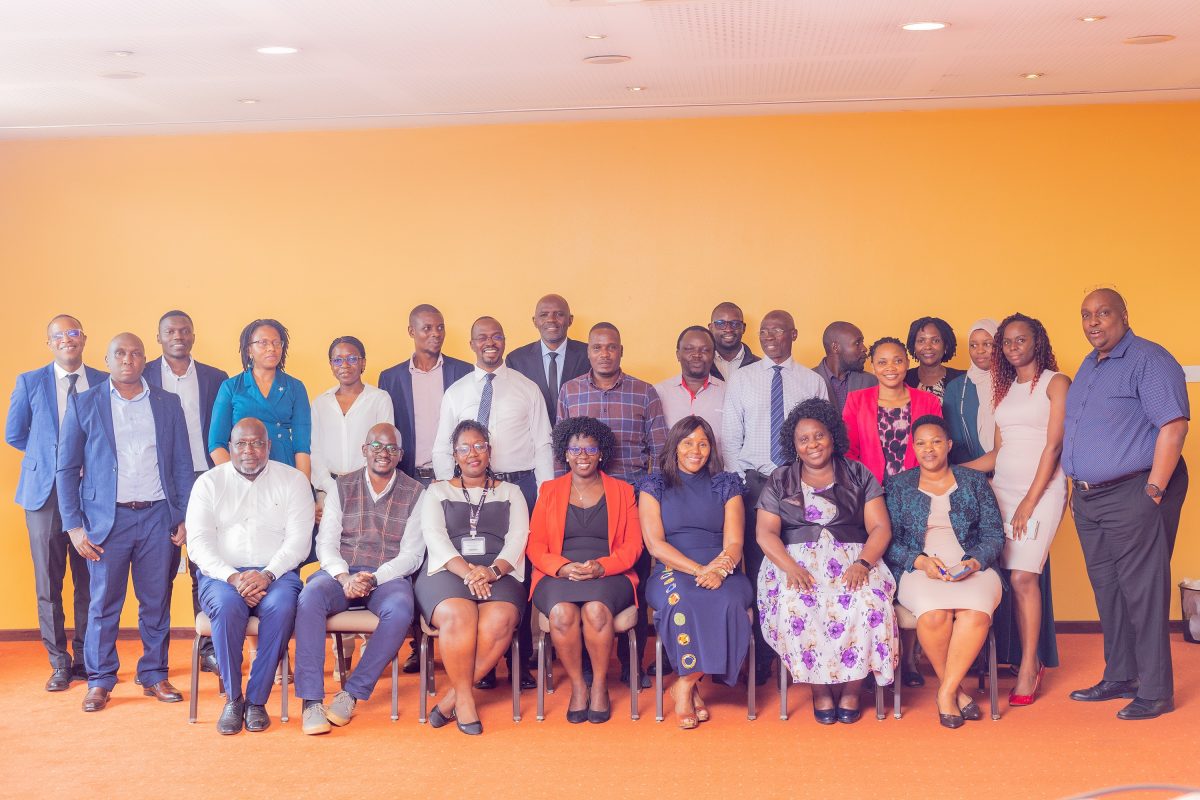Kampala, 11 November 2025 —Makerere University School of Public Health (MakSPH), the Ministry of Health (MOH) and Joint Medical Stores (JMS) have launched a project to boost Uganda’s health supply chain. Backed by the Gates Foundation, it aims to improve emergency deliveries and use data to ensure lasting resilience.
The intervention began on Thursday, 6 November, with the flag-off of emergency distribution of medicines and health supplies at JMS in Nsambya. Under a sub-award from MakSPH, JMS is leading warehousing, distribution, redistribution of essential commodities, reverse logistics, and technical support to health facilities, including digital training for over 1,100 facilities in the Integrated Online Ordering System. The operation aims to deliver USAID-supplied medicines that had remained in storage since donor support was suspended earlier this year, preventing expiry and restoring last-mile delivery across the country.
Building on this, MakSPH convened a stakeholder consultative workshop on Monday, 10 November, at Kabira Country Club to guide the research component of the initiative. Officials from the Ministry of Health, development partners, and health logistics experts reviewed the scope of a new study on strategic analytics to strengthen a sustainable and resilient health supply chain. The consultation focused on refining research questions to ensure alignment with national priorities and stakeholder needs.
Dr. Suzanne Kiwanuka, Associate Professor and Head of the Department of Health Policy, Planning, and Management (HPPM), stressed the need for practical, evidence-based collaboration.
“Our commitment is to make sure that whatever evidence we generate is useful. We want perspectives on governance, implementation, and the frontline, because when the supply chain isn’t functioning, a lot goes wrong,” said Prof. Kiwanuka.

The Ministry of Health has welcomed ongoing support from partners to stabilise the supply chain.
“I want to draw attention back to our 10-year health supply chain roadmap. Despite disruptions, we made important milestones in the first five years, and with support from Makerere School of Public Health and the Gates Foundation, we are now focused on understanding challenges and building a resilient, sustainable supply chain,” said Dr. Ajulong Martha Grace, Assistant Commissioner, Pharmaceutical Supply Chain and Logistics.

Over the past decade, Uganda’s health supply chain has made steady progress under the 10-Year Roadmap for Health Supply Chain Self-Reliance (2021/22–2031/32), which sets out a vision for a self-reliant, efficient, and transparent system that ensures uninterrupted access to essential medicines. Efforts have focused on increasing financing, digitising logistics, strengthening local manufacturing, and expanding infrastructure.
Despite these gains, the system remains vulnerable. Limited financing, capacity gaps at subnational levels, and poor commodity reporting have contributed to stockouts and wastage. Heavy reliance on donor support, compounded with back-to-back shocks, has left Uganda’s health system exposed to shocks, such as the recent suspension of USAID support, which disrupted last-mile delivery to over 530 private not-for-profit health facilities.

Commodities worth more than UGX 79 billion have remained in storage, risking expiry and could potentially reverse service delivery gains. The Gates Foundation’s support comes at a critical moment to stabilise last-mile distribution while generating analytics to address deeper structural challenges.
“Before these financial disruptions, our public sector supply chain was already under intense pressure to meet rising last-mile demands. The current challenges are a critical opportunity to address long-standing bottlenecks, improve delivery of essential medicines, strengthen real-time monitoring, and build a more sustainable health system in Uganda,” said Timothy Musila, a Health Policy, Planning and Financing Specialist.

MakSPH, in partnership with the Ministry of Health, will carry out Strategic Systems Analytics to strengthen Uganda’s supply chain. The research will examine financing gaps, fiscal space, operational inefficiencies, and performance at the subnational and last-mile levels. This co-created evidence generation will also identify opportunities for sustainable financing and efficiency gains to reduce reliance on external aid and to guide reforms that ensure that essential medicines and products remain accessible to all Ugandans.

This work is spearheaded by Professor Rhoda Wanyenze, as the Principal Investigator, and Associate Professor Suzanne Kiwanuka, the Co-Principal Investigator/Research Technical Lead on the Makerere University side. Dr. Charles Olaro, Director General of Health Services at the Ministry of Health, is the focal person on a five-member steering committee overseeing the implementation. The team includes Pamela Achii, Procurement and Supply Chain Management Specialist at the Ministry, and Mr. Timothy Musila.
By Davidson Ndyabahika



